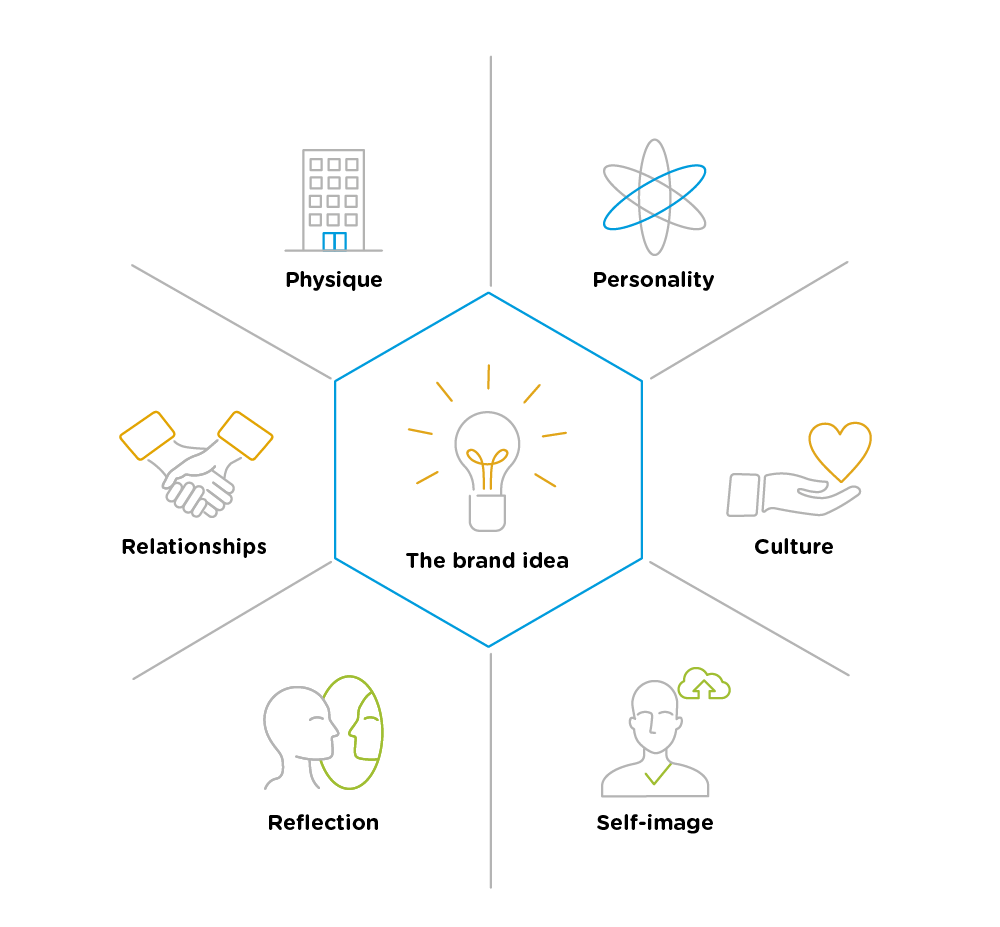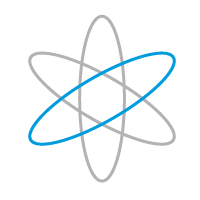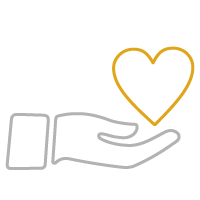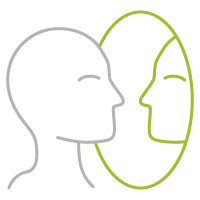The employer’s identity tells who the company really is. It is not just what we promise (EVP), but how we work on our audience and what people associate with our name. Identity is what both employees and applicants can identify with. It is common, long-term and forms the basis of the brand’s trust and authenticity.
Hero image: Dobromir Hristov
Well grasped employer’s identity:
- creates cohesion among employees,
- helps to distinguish themselves in the labor market,
- facilitates the formation of content and communication,supports the company’s culture,
- inspires Leadership.
Brand Identity Prism: A Structured Tool for Grasping Identity
The Brand Identity Prism is a model created by Jean-Noël Kapferer, Professor Emeritus of Marketing at HEC Paris and a recognized brand expert. It is used to help a company describe its brand in a comprehensive and clear way.
The brand identity prism uses six aspects that together create a coherent brand image, or rather a template for its formation.
A separate chapter is the central idea of the brand. It is a basic idea that connects all aspects of the identity into one meaningful whole.
Brand identity expresses who the brand really is, what values it embodies and what is the essence of its existence. It is a compass that guides the company’s communication and decision-making.
Employer Brand Identity Prism
This model is very useful for employer branding. It helps to align the views of management, HR, marketing, employees and applicants. It shows not only what the brand is, but also what it would like to be (aspirations).
Based on our experience, we have adjusted individual aspects of the model to better match the specifics of the employer brand – for example, we have included the customer perspective in relationships or taken into account the aspiration towards more diverse target groups in reflection.
A correctly defined employer brand identity with the help of the brand identity prism serves as a template for building the expected image of the employer brand. It inspires not only a clear verbal and visual expression, but also specific steps that transfer the identity into everyday practice.

Image: Brand identity prism by Jean-Noël Kapferer
Individual Aspects in the Context of Employer Branding
Each aspect (angle of view) of the EBI prism has its own unique meaning:
- Physique – How the brand looks; visual elements of the brand, such as the logo, corporate colors, but also the work environment, products, etc.
- Personality – How the brand behaves; communication style, manner of expression, actions.
- Relationship – The company’s commitment to its customers, communities and other stakeholders.
- Culture – Internal relationships, shared values, rituals and history of the company. What shapes the internal life of the organization.
- Reflection – A reflection of a typical brand user; in our case, a typical employee, what type of people they attract and who they are associated with.
- Self-image – How employees see themselves, how they perceive themselves as part of the organization. What they see as the meaning of their work, what gives them pride.
The brand idea remains the brand idea and, in the context of EB, expresses the fundamental idea that unifies all aspects of the employer brand identity – that is, who we are as an employer and who we would like to be.
Model Example: An IT Company with an Informal Culture
Let’s imagine a smaller IT company with 80 employees. It has agile teams, a friendly environment, and supports remote work. The management wants to attract new colleagues who value autonomy and freedom.
A Brand Identity Prism for this company might look like this:

Physique
Colorful and simple visual identity, modern offices, comfortable chill-out zones.

Personality
Relaxed, friendly and humorous communication. Use of emojis, memes and pop culture references.

Relationship
Solutions for healthcare startups improving patient care.

Employer Brand Idea
Freedom to create and grow with people you can count on.

Culture
Freedom, trust, shared know-how, agile mindset.

Reflexion
Young IT guys, people from smaller cities looking for a relaxed environment.

Self-image
“We’re a bunch of smart people who want to do meaningful things.”
How to Derive Verbal and Visual Identity of an Employer Brand From Prism
Brand Identity Prism is not just an analytical tool. It also serves as a basis for creating consistent and authentic communication.
Examples:
- Physique will influence the style of photographs, color and visual atmosphere of campaigns. Tip: Get inspired by the real work environment and employees, do not use stock photos.
- The tone of voice comes from the Personality aspect: funny, natural, without corporate jargon. Tip: Name several character traits of the brand and translate them into a linguistic style.
- Culture is reflected in the content – articles about internal company traditions or team values. Tip: Map what values are really lived, not just declared.
- Relationship describes who and how the brand is committed to – that is, who it exists for and how it interacts with these groups. It includes relationships with employees, applicants, customers and the community. Tip: Observe what relationships and rituals your people value and translate them into communication.
- Reflection reveals how a brand appears on the outside—and what types of people it attracts. Tip: Ask candidates why they are interested in the company and factor that into your content.
- Self-image helps you understand what employees find meaningful and proud of. Tip: Use employee language in storytelling and test what resonates.
Brand Identity Prism as a Tool for Change
The model allows you to not only describe the current state, but also reflect on the future ambitions of your employer brand. It is the aspirational elements that are key to brand development.
For example, a company that wants to be more open to diversity can include this goal in the Reflection aspect (who are typical employees). It can then plan specific steps to achieve this – both in recruitment and in the company culture.
Leadership involvement is essential in this regard. It is their vision and values that shape the future identity of the employer brand.
Short guide: How to Proceed with Creation of Prism
Creating an EBI using Brand Prism takes place in several steps:
- Data collection – interviews with management, employees, and possibly candidates.
- Design workshops – working together to fill in the prism (reality vs. aspiration).
- Feedback and validation – verifying consistency across the company.
- Translation into communication – designing a tone of voice, visual style, content themes.
- Prototyping – expressing your identity using relevant texts and visuals.
Practical Tips in Conclusion
Working on an identity together can bring a number of “wow” moments. Employees often perceive and describe the company differently – some see it as innovative and restless, others as stable and secure.
It is the shared search for agreement on who we are as a brand and what we want to be that helps build cohesion. A clearly formulated identity then allows us to communicate consistently across the entire organization.
Don’t be afraid to use the principles of prototyping when creating an identity. The definition of a brand identity can be tried, tested and tuned – for example, through different variants of texts, campaigns or visuals. Observe how people react to them, what resonates in them and what is confusing.
- Don’t try to be perfect – authenticity is more than an ideal.
- Involve ambassadors – verify how the brand manifests itself in real life.
- Use the prism as a living document – ideally update it once a year.
Brand Identity Prism is a tool that helps your employer brand find its roots and direction for growth. It’s a map and compass in one.
Want help defining your employer brand identity? We’re here for you. Write to us at info@menseek.eu and let’s talk.
Build Your Employer Brandwith Quality Content
A strong employer brand doesn’t happen by accident. It needs consistent, engaging, and strategically driven content.
That’s exactly what we can help you with. As part of our content service, we’ll create articles, videos, social media posts, and internal communications for you.
Simply put, everything that really brings your brand to life.

I enjoy connecting people who belong together, supporting their cooperation and inspiring them to find new solutions. I help companies create an attractive employer brand. I am interested in design thinking, lean approaches and agile marketing. You can also meet me as a lecturer at our workshops.




